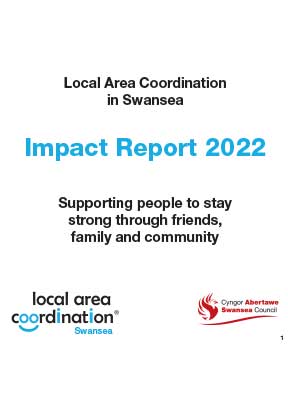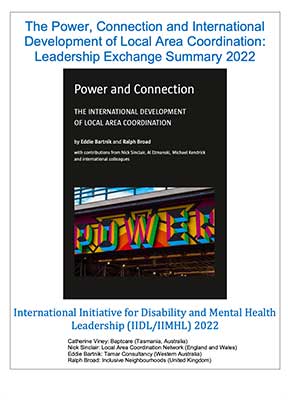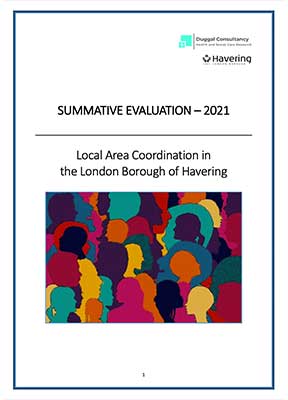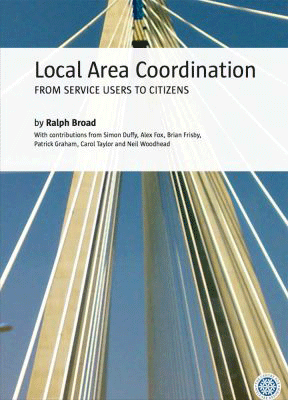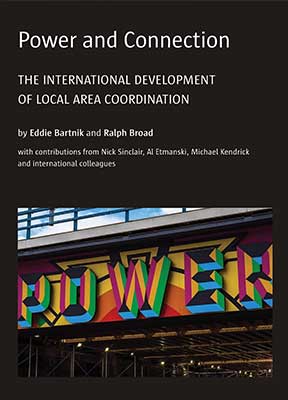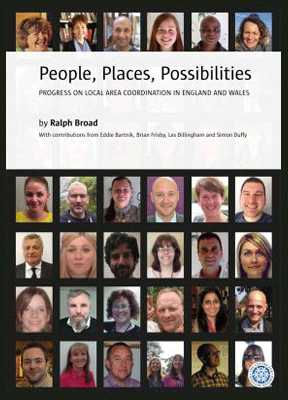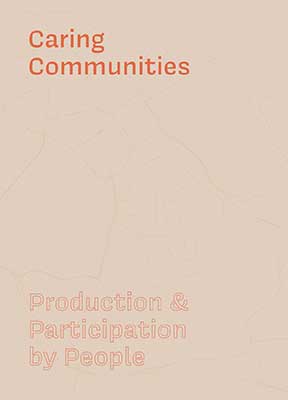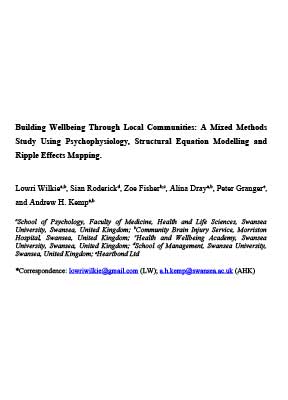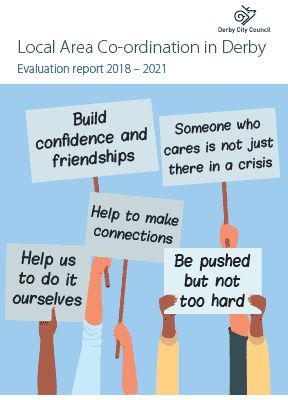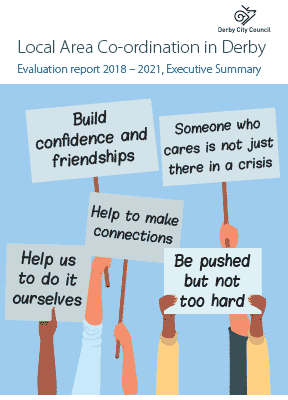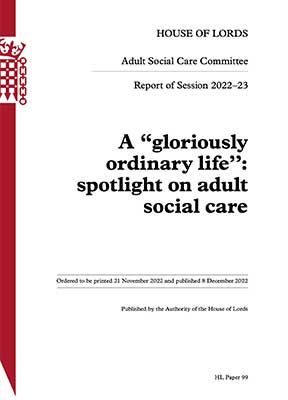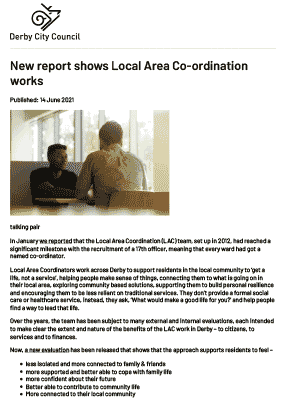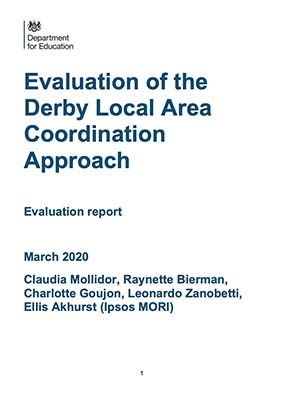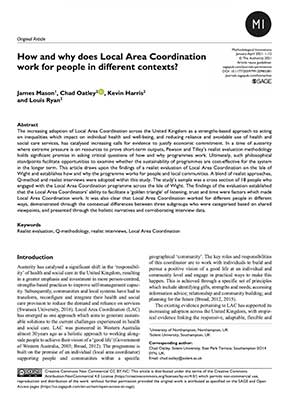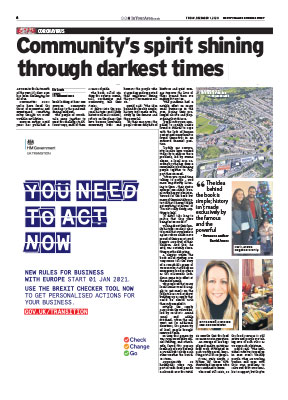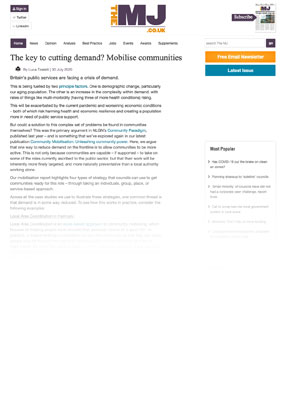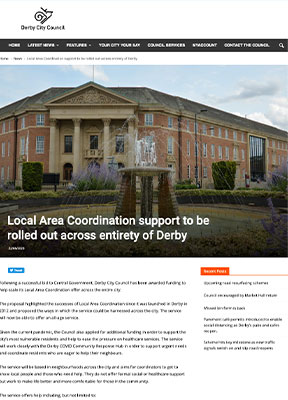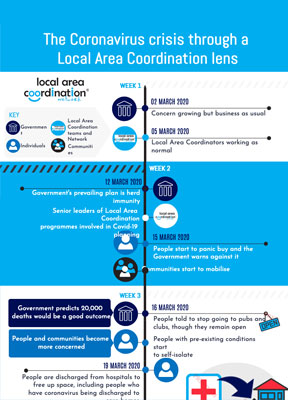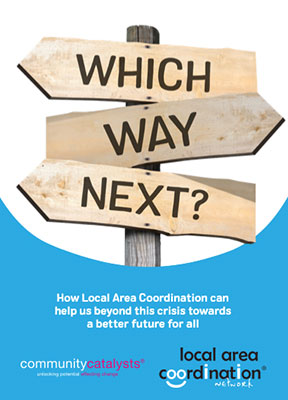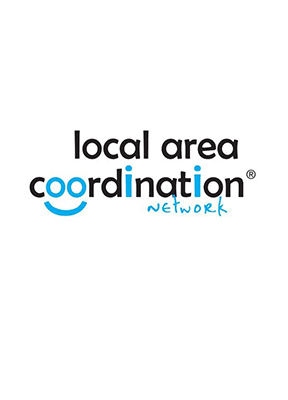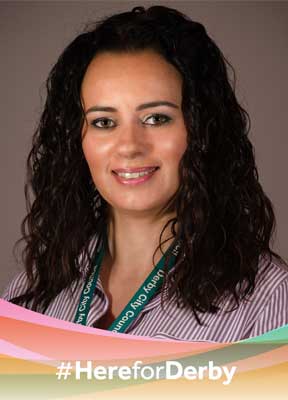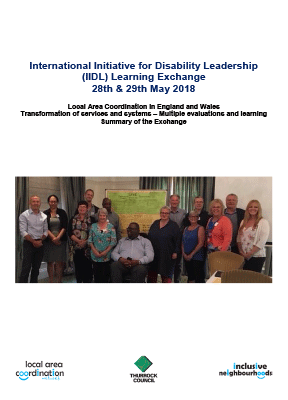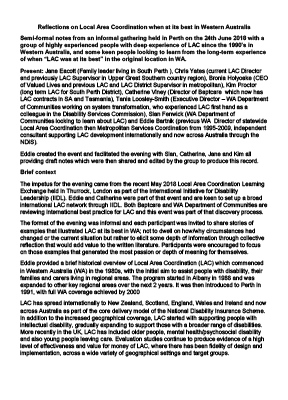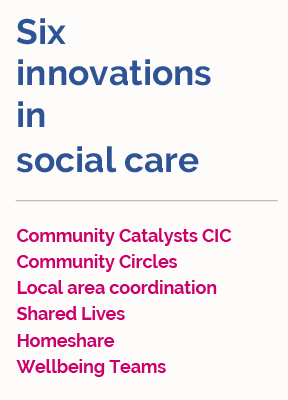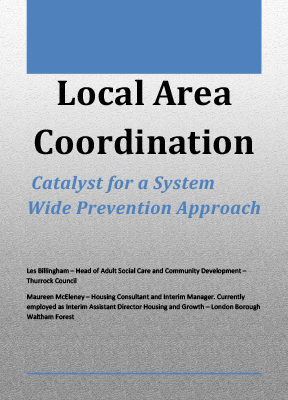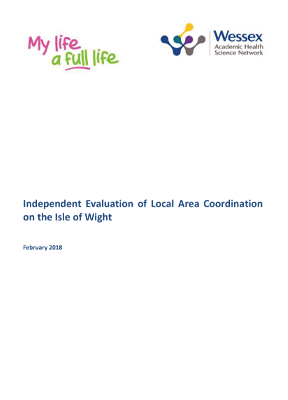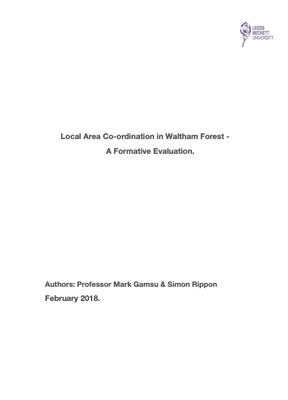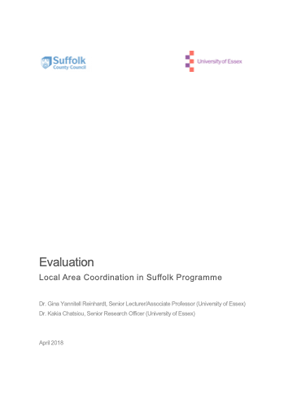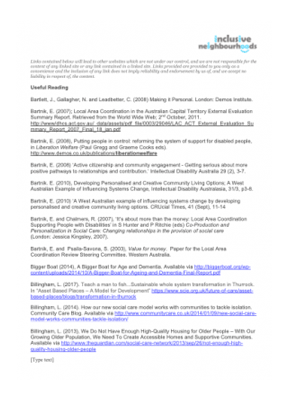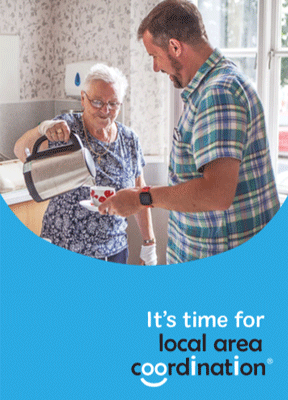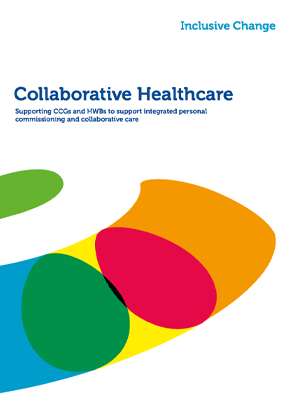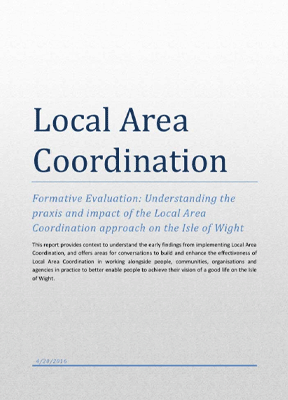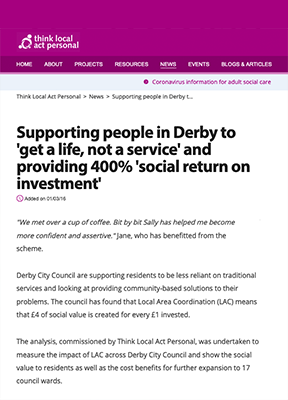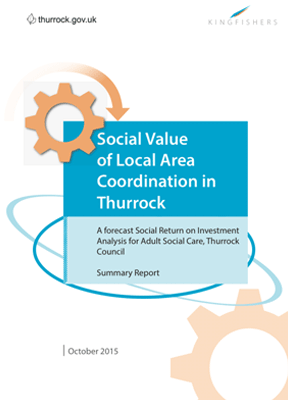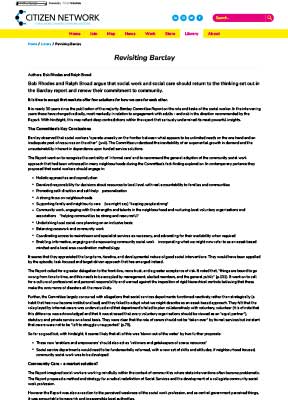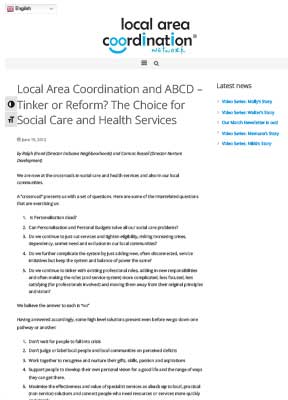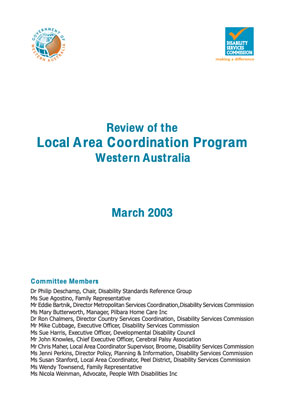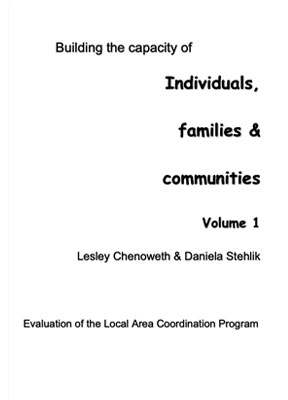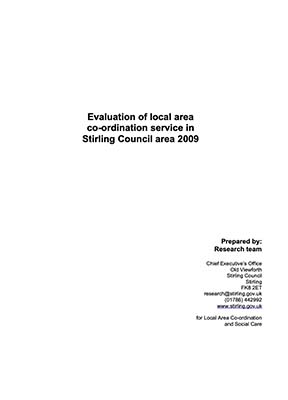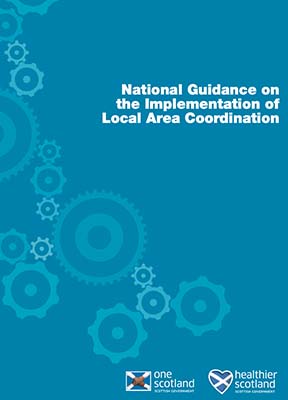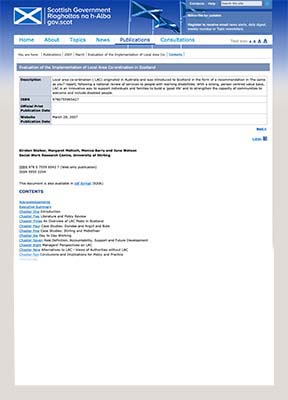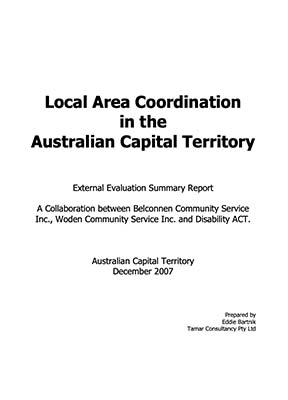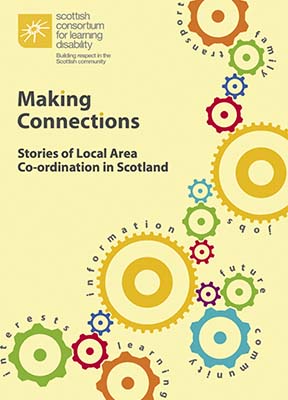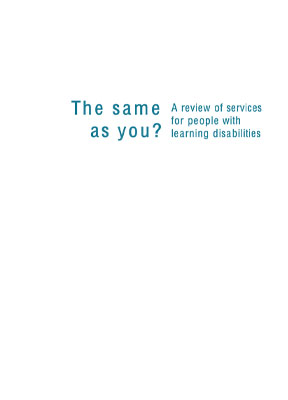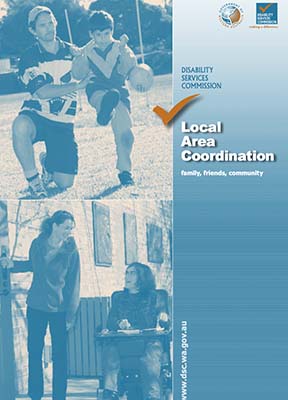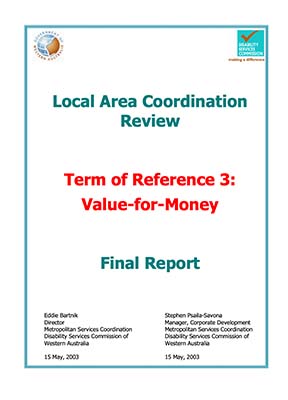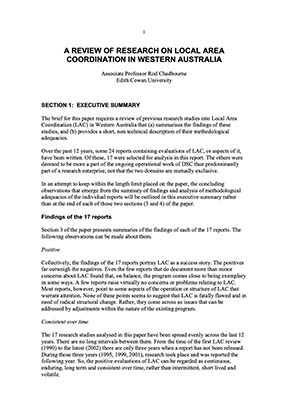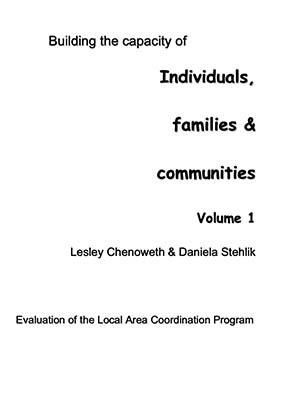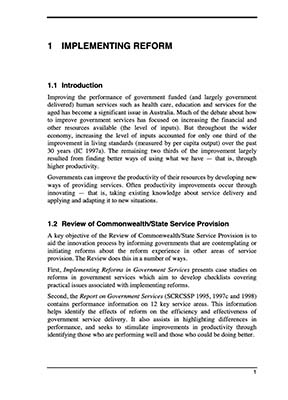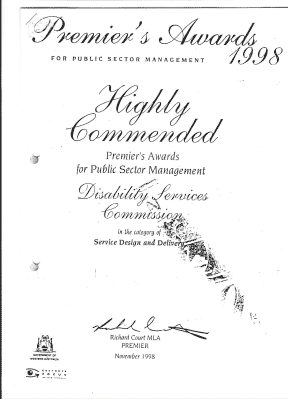Swansea University Evaluation of Local Area Coordination in Wales – Out Now
It is really exciting to see the new Local Area Coordination formative evaluation by Swansea University, in partnership with the Western Bay Health and Social Care Programme.
Swansea was the first area in Wales to develop Local Area Coordination, closely followed by Neath Port Talbot. So, it’s great to see the emerging stories and outcomes being shared through this independent research. It’s an opportunity for reflection, learning and improvement.
On a personal level, it has been a very exciting journey working and learning alongside local people, communities, services and leaders as together they developed Local Area Coordination in Swansea, as part of their focus on prevention, capacity building, reform and delivering the aspirations of the Social Services and Well Being (Wales) Act (2014) and, more recently, the The Wellbeing of Future Generations (Wales) Act 2015.
Most importantly, it is all about local people and their inspiring personal strengths, connections, journeys, outcomes and contribution.
What does the report show us?
Well, it shows the significant value of walking alongside individuals, families and communities in a more personal, local, positive, flexible, human way, with people
- being more connected (less isolated) – family, friends, community
- finding their own practical solutions, feeling more in control of their lives and decisions
- needing services and formal support less
- more able to contribute – helping people to help themselves
“Continued pressure upon public services can make it a challenge to embrace opportunities and adopt new practice. Tracking the emergence of Local Area Coordination across two regions has demonstrated multi-level impact across stakeholder agendas (even at this formative stage) on an individual, family and community level. The Local Area Coordination teams have worked tirelessly to bring together key stakeholders to engage with the process, avoid duplication and share learning. We have heard many claim they are already “doing Local Area Coordination” in one guise or another but this has not been reflected in our findings. Their passion, drive and commitment to the vision and mission of Local Area Coordination is inspirational and it has been a privilege for us as researchers to have an insight into such a powerful mechanism for real change” Sian Roderick (Deputy Director of Interdisciplinary Research, Swansea University)
In the first 3 areas within Swansea, during the early development/learning period (July 2015-April 2016) the report showed
- financial benefits of £800k-£1.2m (benefit cost ration of between 2:1 and 3:1), based on most conservative assessments
- expected benefits rising to between 3:1 to 4:1 when embedded within communities and partnerships established with services and partners
***Local Area Coordination has subsequently expanded to 6 areas in Swansea, with approval and plans underway for a further 3 Local Area Coordinators/areas in 2017.
- the development of strong and enduring personal networks alongside individuals/families and across communities, with these connections being sustained without ongoing Local Area Coordination involvement – reducing isolation and building local resilience and control.
- demonstration that Local Area Coordinators are having a positive, sustainable effect alongside local people – moving from initial introductions through to active collaboration and positive outcomes
- the positive impact alongside people from a wide variety of backgrounds and situations, in particular supporting people to overcome loneliness and isolation and alongside people with very complex life situations
- Local Area Coordination “tackling a broad range of social and personal issues”
- Local Area Coordination “adding value across a range of public service pressures”
At its heart, Local Area Coordination is about the power of respecting the inherent authority and strengths of all people, coming alongside people early, being locally based, building a trusting relationship and having the right conversations – “what is a good life for you and what are the different ways you can make it happen?” rather than “what are your needs and what services and money do you require, if eligible?”
It all started in Swansea in late 2013, with people hearing about Local Area Coordination and starting to build a shared vision for what might be possible with a focus on people, communities, prevention and capacity building – beginning with a focus on building on individual, family and community strengths, resilience and sustainable local solutions, as well as strong partnerships with statutory and community services.
The team took time to develop a shared understanding and effectively develop Local Area Coordination together, building the core building blocks of values, principles, co production and a very personal, human approach alongside local people and communities. “The “slow fix”, leading to quicker, better and more sustainable outcomes than a traditional “quick fix””
Jane Tonks (Local Area Coordination Manager, Swansea) reflected
‘It’s been so exciting to be part of the whole Local Area Coordination journey; we’ve collaborated with colleagues, both locally and across the UK, in ways that have taken to us to a completely different place in terms of our thinking and our work alongside people and communities. The evaluation process, and now the publishing of the report have really helped us too. We have a solid foundation to build on and the future is full of possibilities–for more Local Area Coordinators to cover the whole of Swansea and for continued learning and development.’ (Jane Tonks: Local Area Coordination Manager, Swansea)
What has struck me from the beginning of the journey was the power and value of local people, services and leaders working together to build a shared vision and make it happen…together – building on what’s working well and a clear focus on relationships, communities, inclusion and resilience.
Finally, the report also reflects some of the key learning around the important building blocks that lead to strong outcomes and recommendations for the ongoing development and improvement of Local Area Coordination.
Ralph Broad
Director
Inclusive Neighbourhoods Ltd

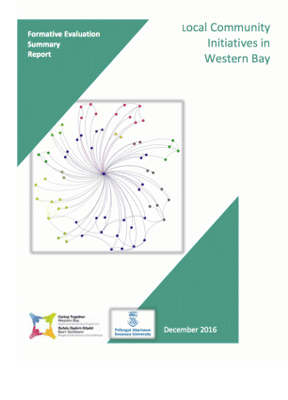 Read the report here.
Read the report here.